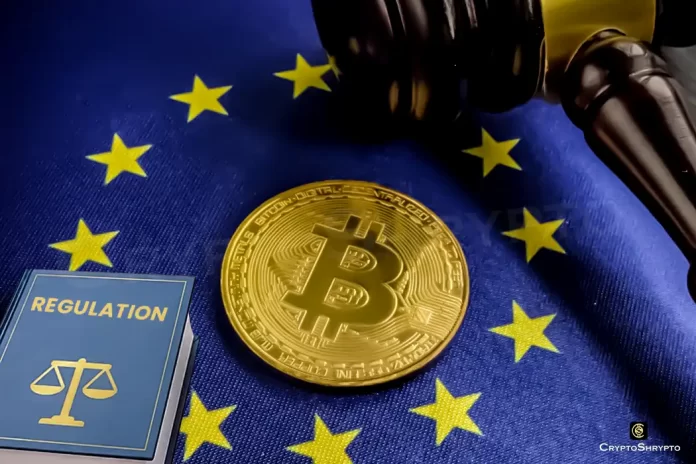Negotiators from the EU Parliament and Council have passed a new bill that will enable them to track the transfers of crypto assets like Bitcoin and other digital asset tokens. The agreement was reached on June 29. The creation of an anti-money laundering (AML) body with the authority to control particular crypto asset service providers, or CASPs, has been approved by the European Council. The new legislation agreed:
“Transfers of crypto-assets will be traced and identified to prevent money laundering, terrorist financing, and other crimes.”
The agreement is merely a modification of the “travel value” criterion found in conventional finance. According to the EU, the new regulation attempts to stop suspicious transactions from occurring in the cryptocurrency market.
Ernest Urtasun (Greens/EFA, ES), co-rapporteur for ECON, remarked:
“This new regulation strengthens the European framework to fight money-laundering, reduces the risks of fraud and makes crypto-asset transactions more secure. The EU travel rule will ensure that CASPs can prevent and detect sanctioned addresses and that transfers of crypto-assets are fully traceable.”
The most recent regulations are a result of regulatory tightening efforts by the EU to combat money laundering. Parliament negotiators ensured that there would be no minimum criteria or exemptions for low-value transfers, as originally envisaged, as crypto-asset transactions simply avoid existing thresholds that would activate traceability requirements.
The creation of an anti-money laundering (AML) body with the authority to control particular crypto asset service providers, or CASPs, has been approved by the European Council. EU would not be allowed to transact with CASPs that are listed on a public register as being non-compliant and unsupervised. Negotiators concurred that personal information should not be provided if there is no assurance that the recipient will uphold privacy, including the name and address required under the travel rule.
The rules would also apply to interactions between transactions from “so-called un-hosted wallets” and hosted wallets managed by CASPs (a crypto-asset wallet address held by a private user). The regulators stated that “the CASP must certify that the wallet is truly owned or under the customer’s effective control if a customer sends or gets more than 1000 euros to or from their own unhosted wallet.”
Read more:
- Ukraine became the second non EU member of European Blockchain Partnership
- European Union plans to agree on Markets in Crypto-Assets (MiCA) regulatory framework




